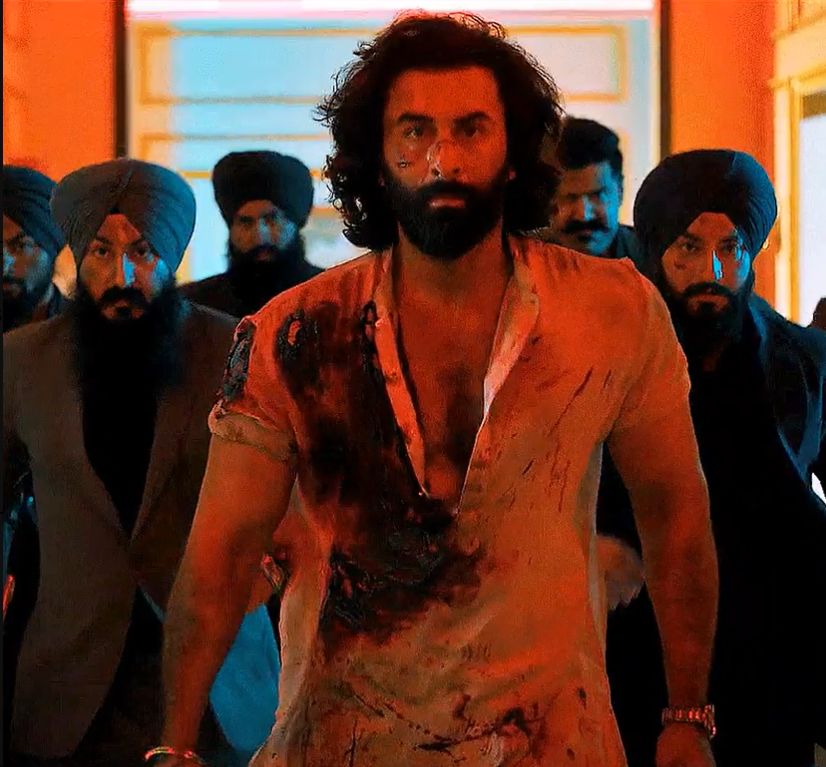The debut of “Animal” has stirred up quite the storm, particularly in its portrayal of alpha male character traits. Sandeep Vanga, the brain behind the film, has been under a spotlight for defending it and passing statements like “There’s no love if you can’t cuss and hit a woman.” These statements have ignited a raging inferno of debate, with critics and audiences alike dissecting the film’s messages and societal impact with fervor.
Despite facing significant backlash, what’s truly concerning is the unwavering support “Animal” continues to receive from the audience. Even in the face of criticism and opposition, there’s a disturbing level of conformity to the film’s themes and flawed arguments. The fervent backing of these movies and narratives suggests a collective acceptance or even endorsement of harmful ideologies perpetuated by the film, raising questions about the responsibility of filmmakers and media creators in shaping societal norms and values.
After centuries of progress and enlightenment, are we regressing to a mindset that glorifies outdated concepts like the alpha male? In a global democracy that advocates gender equality and respect, it’s disheartening to see such adherence to archaic ideals that perpetuate harmful behaviors and attitudes.
It’s not just about alpha males flexing their muscles; there’s a deeper, more troubling narrative at play here. So, let’s dissect “Animal” and the trends and viewpoints it’s promoting.
The Alpha Male Dilemma
The alpha male dilemma revolves around the conflicting perceptions and societal expectations associated with traditional alpha male traits. On one hand, alpha males are often admired for their confidence, assertiveness, and leadership qualities. They are seen as powerful and successful figures, both in human society and in the animal kingdom.
However, the concept of the alpha male also carries negative connotations, particularly in contemporary discourse. Traits such as dominance, aggression, and a lack of empathy can lead to toxic behaviors and reinforce harmful gender stereotypes. This dichotomy raises questions about the true nature of alpha males—are they admirable leaders or purveyors of toxic masculinity?
At first glance, the alpha male persona, as elucidated by Rannvijay to dissuade Geetanjali from her engagement, seems captivating—confident, protective, and commanding. Yet, as the plot unravels, so too does the facade of this glorified archetype. Geetanjali’s ultimate decision to leave Rannvijay in the climax highlights that the alpha male image is riddled with contradictions and flaws.
Indeed, Rannvijay’s aggression and violence, purportedly in the name of protecting “his” woman, serve as poignant examples of this dichotomy. Scenes depicting acts of physical and verbal abuse towards Geetanjali starkly contrast the notion of safeguarding and ensuring the comfort and safety of one’s partner.

In essence, the film challenges the very essence of the alpha male concept—revealing its inherent flaws and the disillusionment it can breed. After all, if a woman does not feel safe and protected in the presence of her supposed protector, what validity does the alpha male persona hold?
For centuries, the allure of the alpha male has captivated audiences worldwide, permeating literature, film, and popular culture. From the pages of classic novels to the silver screen, the portrayal of characters embodying alpha male traits has been met with widespread fascination and acclaim. But why does this archetype continue to resonate so deeply with audiences, even as societal norms evolve?
In literature and cinema, we’ve witnessed a recurring motif of alpha male characters, albeit often in subtle ways. These figures possess traits such as confidence, assertiveness, and a penchant for protection, all of which contribute to their magnetic appeal. Films like “Kabir Singh” exemplify this phenomenon, with audiences drawn to the protagonist’s unwavering determination and ability to protect his love interest.
In both Bollywood and Tollywood, the romanticization of alpha males is prevalent, with women often depicted as falling for men who embody these traits. The trope of the hero rescuing the heroine from perilous situations has become a staple of the genre, reinforcing the idea of the alpha male as a savior figure.
These romanticized portrayals of alpha males can have significant implications in society, shaping perceptions of masculinity and influencing relationship dynamics. The glorification of alpha male behavior may inadvertently perpetuate harmful gender stereotypes and contribute to unhealthy power dynamics in relationships.
The whole idea of an alpha male is rooted in this notion of dominance and control. And while that might sound impressive on paper, it often translates into behaviors like aggression and violence, which are anything but admirable.
What’s really worrying is how society eats it up. We see it in movies, in literature, heck, even in our everyday lives. We’re bombarded with this idea that alpha males are the pinnacle of masculinity, and that aggression and violence are somehow markers of strength.
And when we buy into this narrative, we’re essentially reinforcing toxic mindsets. We’re telling ourselves and others that it’s okay to prioritize power and control over empathy and respect. And that’s not a road we want to go down.
The Appeal of Regressionism
The persistent appeal of regressionist themes in media, including movies and books, raises intriguing questions about societal preferences and aspirations. Despite the overarching narrative of progress and advancement, subtle details and portrayals reflecting regressionist ideals find acceptance among audiences.
This phenomenon can be attributed, in part, to the inherent human inclination towards familiarity and nostalgia. Regressionist narratives offer a sense of comfort and security by evoking sentiments associated with a bygone era, where societal norms were perceived as more stable and comprehensible.
Interestingly, when films like “Thappad” dare to challenge these norms and advocate for equality and respect in relationships, they face pushback. This double standard highlights a concerning trend in cinema where regressive narratives are prioritized over progressive ones.
Another troubling aspect is the portrayal of women as possessions of the male protagonist. The hero’s insistence that his wife remains faithful even after his passing, while he indulges in extramarital affairs, highlights the patriarchal notion of ownership and control. This double standard not only diminishes women’s agency but also perpetuates the idea that they are mere objects to be owned and controlled by men.
Conclusion
So, as much as we might enjoy watching these larger-than-life characters on screen, it’s crucial to approach them with a critical eye. Let’s not forget that there’s a fine line between admiration and endorsement, and it’s up to us to navigate it thoughtfully. By questioning the messages these movies send and promoting healthier, more inclusive ideals of masculinity and femininity, we can work towards creating a culture that values respect, empathy, and equality for everyone.
By Anushka Mehta


